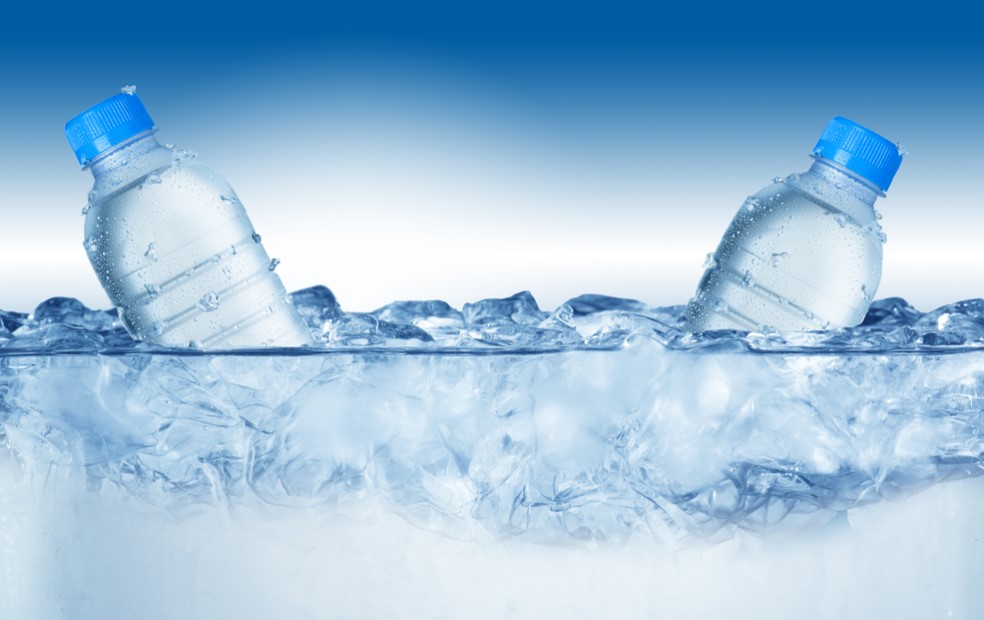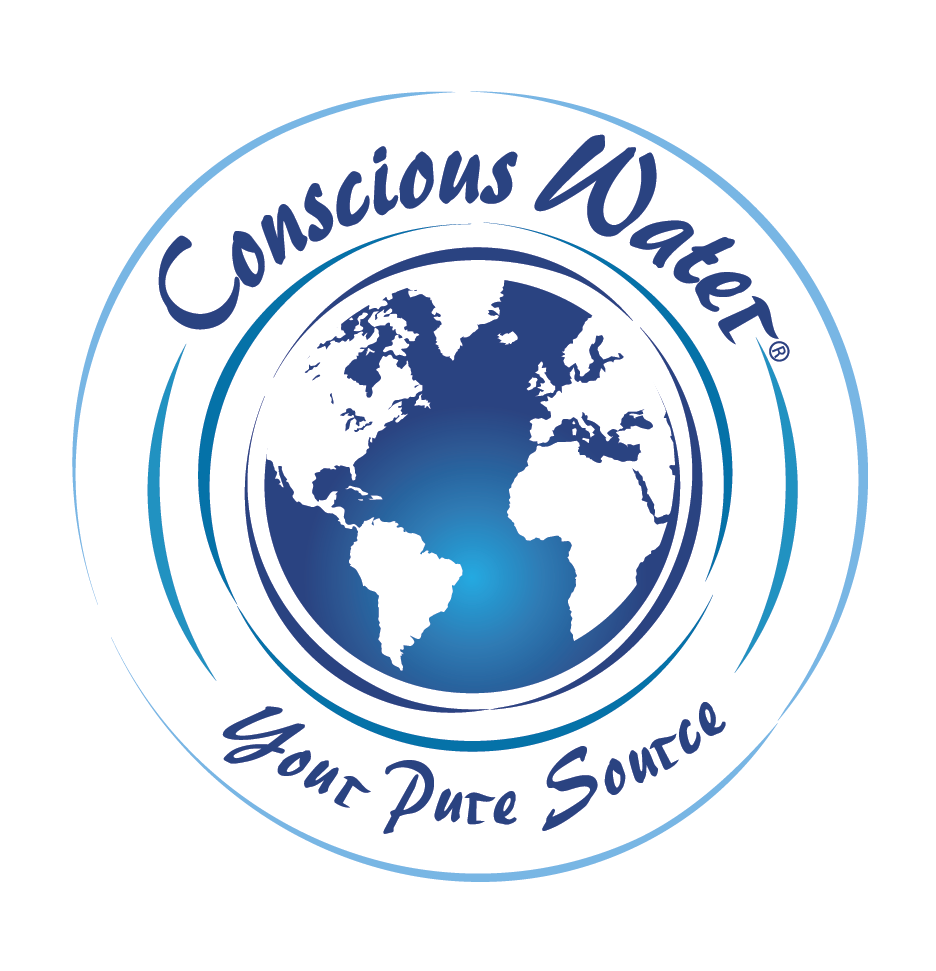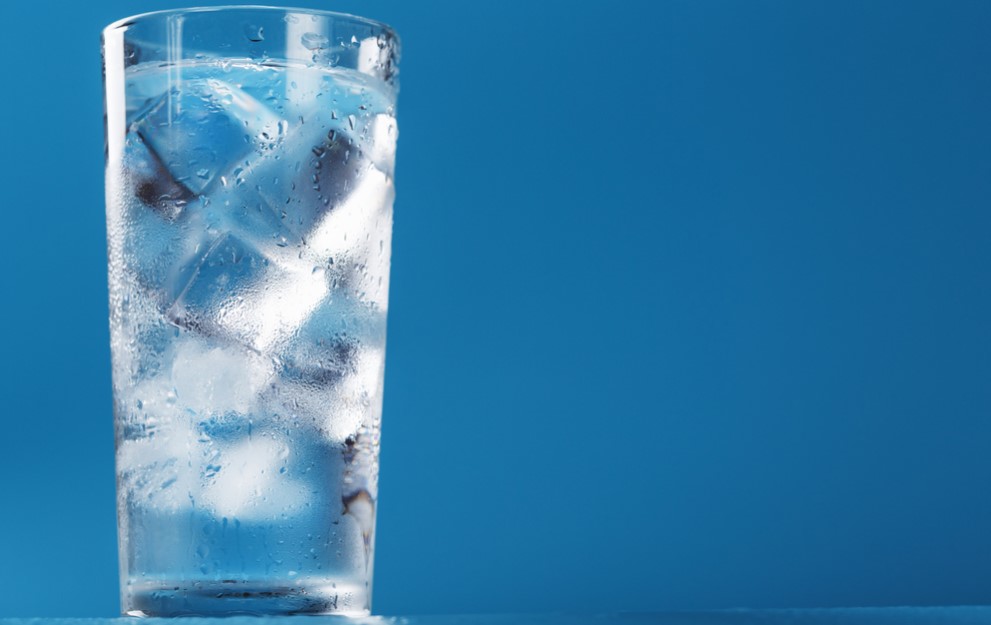The debate still rages on whether or not drinking cold water is bad for humans, and there are plenty of scientific studies looking into the issue that make it easy to distinguish the facts from the myths.
Once in a while, you might feel an undeniable urge to grab a glass of ice-cold water.
While drinking cold water is refreshing, you might have one primary concern lingering on your mind. Yes, you guessed it right: is drinking cold water bad for you?
Today’s post examines the intricacies of drinking cold water and the effect this practice has on your health. Let’s dive in.
Is Drinking Cold Water Bad for Your Health?

Drinking cold water is not bad for you unless you have specific underlying health problems. Scientific studies have shown that drinking cold water benefits your body in various ways. We’ll look at these benefits later on.
There isn’t enough evidence to prove that drinking cold water is bad for you if you are healthy without any underlying complications whose symptoms could be magnified by ingesting cold water.
That said, you must take care not to drink cold water if you have certain health complications, as discussed below.
Health Risks of Drinking Cold Water
Different scientific studies point to the risks and disadvantages below that may be magnified when ingesting cold water.
1. Drinking Cold Water Causes Headaches in People with Active Migraines
A 2001 scientific study found that people with active migraines usually develop headaches when they drink cold water.
The study of 669 women found that women who had active migraines (at least one migraine a year) had double the likelihood of getting a cold-induced headache when they drank 150 ml of cold water.
Women from the study who had an inactive migraine (last migraine over a year ago) had a reduced risk of developing a cold-induced headache.
2. Drinking Cold Water Worsens Achalasia
If you have achalasia, you have difficulties passing ingested food to the stomach because muscles in the lower part of the esophagus do not relax properly.
Drinking cold water worsens the condition and leads to chest pains and more difficulties and pain when swallowing food.
A 2012 Journal of Neurogastroenterology and Motility study found that achalasia patients who ingested cold water experienced chest pains, worsened dysphagia, and regurgitation. The symptoms were relieved when they drank warm water.
3. Drinking Cold Water Promotes Cold Stress
Picture a person’s body trapped in icy conditions undergoing cold stress, a situation where the body is struggling or unable to warm itself.
Drinking chilled water worsens cold stress as the water lowers the body’s temperature, making it struggle even more to raise its core temperature.
4. Ingesting Cold Water May Trigger Fatal Cardiac Arrhythmia
Ingesting cold water may lead to sudden death when it triggers cardiac arrhythmia in patients with underlying heart disease.
Sudden cardiac death isn’t associated with ingesting cold liquids. Still, in some cases, such as the death of a 12-year-old boy, cold water was suspected of having caused cold-induced vasovagal syncope that led to the fatal arrhythmia.
5. Ingesting Cold Water Weakens the Immune System in People with Weak Immune Systems

If you have a weak immune system, you might want to reduce your cold water intake, as it weakens your immune system.
Human physiology clinician Dr. Pallavi Suyog Uttekar observes that, although rare, ingesting cold water can cause cold stress.
Cold stress, in turn, causes blood vessels in the throat to narrow, a temporary reduction in white blood cells, and reduced ability of the body to fight pathogens.
6. Drinking Cold Water Causes Discomfort for People with Dental Sensitivity
Drinking cold water could cause sharp pains and discomfort if you have sensitive teeth.
7. Drinking Cold Water Worsens Hypertension
People with hypertension or high blood pressure should reduce their cold water intake because it worsens the condition.
Cold water may cause blood vessels to narrow when ingested, leading to blood flow problems.
8. Drinking Cold Water During Heat Exhaustion May Cause Loss of Consciousness
Ingesting cold water when you are suffering from heat exhaustion could lead to loss of consciousness and a lower heart rate.
The vagus nerve runs from the brain to the kidneys and uterus. It regulates internal functions such as heart rate and some reflex actions like sneezing, digestion, respiratory rate, and vasomotor activity.
Cold water may stimulate or activate the vagus nerve and cause vasovagal syncope, where the heart rate and blood pressure decline, leading to fainting.
9. Drinking Cold Water Causes Respiratory Difficulty
If your immune system is weak and you are susceptible to colds or flu, drinking cold water may cause your nasal mucus to thicken, leading to respiratory difficulties.
Hot or warm water helps ease a cold or flu. The nasal cavity opens, and the mucus gets thinner.


